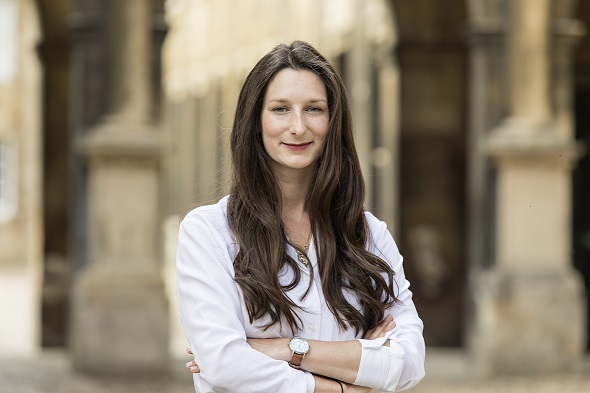Staff profile
Dr Laura McCormick Kilbride
Assistant Professor

| Affiliation |
|---|
| Assistant Professor in the Department of English Studies |
| Fellow of the Institute for Medical Humanities |
Biography
I joined the English department in January 2023, following a Research Fellowship at Peterhouse, University of Cambridge. Previously, I taught English Literature and Literary Theory at the English Faculty, and Creative Writing (Poetry) at the Institute of Continuing Education, University of Cambridge, UK. My critical and theoretical interests have led me into the company of writers and thinkers in poetics, literary theory, classical reception, theology, religious history, philosophy, cognitive science and the environmental humanities. I’ve also worked as a horticulturalist.
I’m currently at work on a book-length creative-critical essay which I’m calling, provisionally, The Church of Blake and Shelley: Poetry and Religion in the Long Nineteenth Century. My title comes from a curious aside made by the poet A.C. Swinburne in a letter to the American critic Edmund Clarence Stedman in 1875. While no friend to the Christian religion, Swinburne was nevertheless prepared to confess his allegiance to poetry as a separate ecclesia describing himself as ‘a kind of Christian (of the Church of Blake and Shelley), but assuredly in no sense a Theist.’ While critics have noted the changing role which art, and poetry in particular, came to have in an increasingly secular society, less has been written about what it is about poetry as an art form that might make it an appropriate replacement for religion. If poetry could replace religious practice, shouldn’t there be something common to both which made them seem like a plausible swap? What was it about poetry in particular that fulfilled this cognitive and social role? These questions emerged during research for my first book, Swinburne's Style: An Experiment in Verse History (Oxford: Legenda, 2018) which argues for the significance of A.C. Swinburne’s poetry both in its time and now.
More recently, I have also been wondering about Matthew Arnold’s belief that reading will somehow make you a better person. My conclusion is this somewhat confused idea will remain vague as long as we continue to prioritise Arnold’s theory of reading over how he actually read. Reading Matthew Arnold reading, I discovered that his practice differed radically from that of his contemporaries and forerunners: as a result, a secular cultural ‘tact’ comes to replace the traditional ‘figural’ method of reading scripture. In rethinking the reading habits of one of literary theory’s foundational thinkers, I also want to invite us to ask how or why we read at all. ‘Words Thrown Out: Matthew Arnold’s Version of Isaiah’ will be published in The Shock of the Old: Victorian Engagements with the Bible and Antiquity, ed. Simon Goldhill and Ruth Jackson Ravenscroft (Cambridge: Cambridge University Press, forthcoming July 2023).
This year I am enjoying lecturing and teaching on the following modules: Introduction to Poetry (L1); Theory and Practice of Literary Criticism (L2); Victorian Literature (L2).
For 2024-5 I am developing a new third-year special topic module on: ‘Literature and the Artinatural 1850-1950’, an invitation to consider a neglected, yet vital, space in aesthetics: the garden.
I welcome enquiries from prospective postgraduate students interested in pursuing research in any of the fields I mention here.

